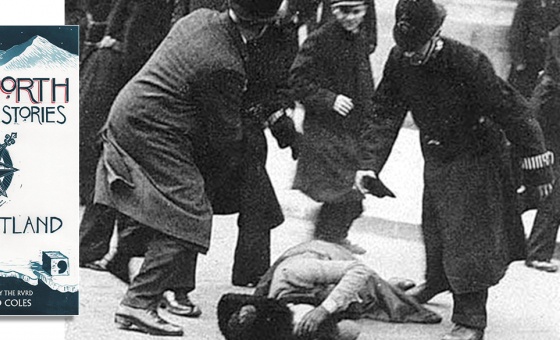This is the last article you can read this month
You can read more article this month
You can read more articles this month
Sorry your limit is up for this month
Reset on:
Please help support the Morning Star by subscribing here
IT’S anyone’s guess how many people who can work from home returned to offices this week under what has been a deluge of bullying from some Tory MPs and their friends in the media.
The government had not released figures by Friday morning, though it must have a rough idea from the real-time data generated by the mass transit systems in London and other cities.
Anecdotal evidence from unions representing transport and office workers suggests a trickle rather than a torrent.
Surveys in August found that Britain had the lowest proportion in Europe — one in three — of those who had moved back to offices after working from home during lockdown. It had the highest number concerned about going back to the “normal” workplace.
The main reason is fear of a second wave of Covid-19. The late and chaotic response of this British government of U-turns to the first wave is why.
Other international comparisons found that those countries that did best at controlling the initial spread also tended to do better in limiting the economic shock that has taken place everywhere. The Tory government stopped its daily briefings, but the number of cases was never brought down over summer to a manageable level. It is rising alarmingly again.
New “local lockdowns” covering large conurbations are mooted this weekend (though you can never tell with this government whether they will be denied at noon only to be imposed via Twitter just before midnight).
As one leading business commentator put it this week, the most important economic policy at this time is an effective public health policy. Yet the government shows no sign of trying to eliminate the virus in England. Instead it presses a false opposition between the economy and public health (feeding obscurantist scepticism about the virus in the process).
So the fears about an autumn resurgence of the virus running into the flu season and hitting a denuded NHS are well founded. They are besetting even the Treasury, which has been pressing the “back to work” campaign.
These are not the only flat contradictions as the pandemic and slump reveal economic and social dysfunctionalities accumulated in Britain over decades.
The near collapse of sandwich chain Pret a Manger is but one illustration of the crisis facing the unsustainable model city centres and the economy as a whole have relied on. The retail and commercial property sectors have played an outsized role in the British economy since at least the 1980s.
The news was greeted with dire warnings that urban centres would become “ghost towns” if normal patterns of commuting and office working did not resume. Many people spontaneously made the point: it used to be that I had to buy a sandwich and coffee because I had to travel to work. Now I have to travel to work in order to buy a sarnie.
Which all poses the question: what kind of economy and rational organisation of society is it that means you travel to Covid-19 insecure workplaces rather than working from home (if you can), or economic Armageddon will ensue?
There have been “carnage on the High Street” headlines on and off for over 20 years. This time it is not some passing downturn. One in ten shopfronts are boarded up — three in ten in some town centres. Central London has seen the biggest increase.
The more a central area has looked like a “clone town,” one dominated by the mega retail chains, the worse it has been hit. One estimate is that 200,000 retail jobs will go this year alone.
The pandemic has accelerated the underlying causes — and they go right to the need for a fundamental reorganisation of the economy rather than hoping a return to business as usual will solve this crisis.
The rise of online shopping and ecommerce is one. It now accounts for one-third of retail sales in Britain. Less remarked upon is that most people do not have much to spend. It took until 2018 for average hourly wages in Britain to return to the level of 2008. The mechanism to deal with the last crisis, bailouts for the banks (boosting financial speculation) and pay cuts for workers, has fed into this one.
Mass unemployment, staved off by the furlough scheme due to end next month, and the fear of it are going to hit consumer spending further.
Two of the trumpeted emergency steps introduced by Chancellor Rishi Sunak were the subsidy to eating out and the suspension of stamp duty on property sales. The temporary measures had some success but vainly looked to traditional, diminishing instruments to stimulate economic growth — consumer spending and the property market.
For decades this mirage along with artificially boosting the financial sector have obscured deep structural problems in the British economy and widening regional and class inequalities.
In a fascinating paper for the History & Policy journal in June Alistair Kefford showed how the Thatcherite revolution built upon what was already an unsustainable model. Even in the golden post-1945 era there was a vicious spiral of councils looking to central retail development, bringing in commercial property developers, driving out small retailers, voluntary associations and residents and pushing up land values.
The developers made a killing. The councils looked to income from the business rate (based on property value). But the result was chaotic competition between towns and city centres producing already in the 1960s a glut of retail space and cyclical oversupply of commercially rented property.
Many town and city centres are already ghost towns outside of peak office and retail hours.
One other consequence of this ponzi scheme is that more people have been driven out of expensive city centres, alongside declining local economies in other cities and towns that are often nearby. The average commuting time has increased for all ages over the last 20 years.
Is it any wonder that people respond to the extraordinary circumstances of the last few months by saying they do not want to go back to that — back to normal?
Other inequalities have been sharply exposed. Most people’s work is beyond interfacing with a computer screen and they cannot work from home. From health to transport and manufacturing we had some lip service in the spring to these essential workers — only for the clapping to stop and the pay caps to return.
A unified response across the trade-union movement is vital if one sector of workers is not to be pitted against another by malign and right-wing forces. (Though staff in busy transport hubs say they are relieved that many office workers have not been stampeded into risky journeys.)
And as with school closures, working from home highlights existing inequalities in housing, childcare, access to technology and general wellbeing. Those fall disproportionately on women as do the destructive pressures that have been thrown onto the family unit.
So it is not a panacea and it raises other issues around collective organisation among employees. But the main thing this and other aspects of the rolling crisis raise is whether there is a big answer from the labour movement. Not only to the immediate threats working people face — the end of the furlough scheme and mass redundancy, for example.
But also to the deep-seated issues that have made working life so hard for so long — right through the normal years.
An answer too to Britain’s chronic economic and social problems, that goes beyond what will be a cacophony of media chatter this autumn about deficits, taxation, work schemes and so on.
A very few people have done very well out of this crisis. It is right to claw that back from them — via taxation and other means. Not to pay off another group of super-rich people, the holders of government debt, but to contribute to a radical transformation away from the old normal.
That calls into question the ownership and control of core parts of the economy and indeed what the economy is for. What is that accumulation of expensive real estate in a town or city centre for; what might it otherwise be used for?
If Johnson’s government can do a Tory nationalisation of rail (one that preserves profiteering and looks to re-privatisation as soon as possible), why can the labour movement not fight for democratic ownership in the public interest of other industries or those large zombie companies kept going by injections from Treasury schemes?
Whether it is fighting evictions, stopping job loses, or coming up with an alternative to the Tories’ 1980s-style youth slave-labour scheme and inhuman benefits regime a radical and transformative programme from the labour movement will be required to pursue those battles and make this government bend to popular interests.
The indications from the last six months are that such a response will resonate among millions of working people.
One thing that will not: telling people that if we just get back to normal then things will sort themselves out and we can then talk about big change.
A lot of people do not believe that. And the last 40 years give them ample reason not to.











